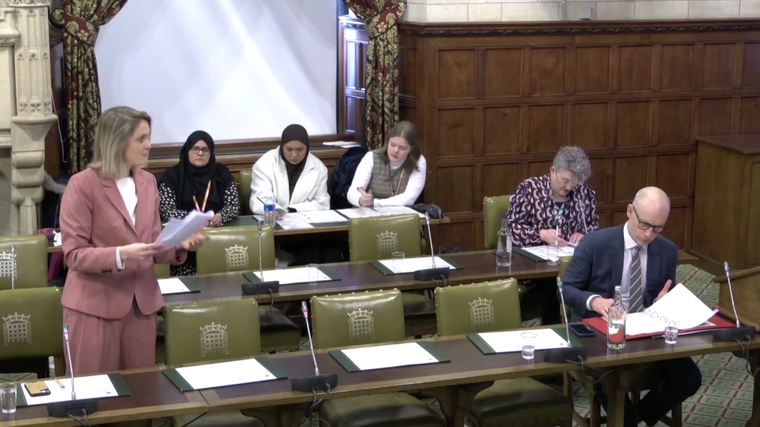Posted By: Amy Tubb
5th February 2025
2 minute read

Today, Laura Kyrke-Smith MP led an important debate on maternal mental health in Westminster Hall, sharing the heartbreaking story of her friend Sophie, who died by suicide just 10 weeks after giving birth to her third baby.
In her speech, the MP for Aylesbury highlighted how common maternal mental health challenges are, and yet how overlooked they continue to be. Though she did acknowledge that improvements have been made in recent years, including an increase in specialist services for women with the most severe and complex issues, she said care remained uneven, with disadvantaged women more likely to miss out.
With support from the Maternal Mental Health Alliance (MMHA), Laura Kyrke-Smith MP suggested four ways in which maternal mental health support could be improved in the UK:
It's incumbent on all of us to keep building a society where everyone understands the mental health challenges in the perinatal period, including the suicide risk in the most serious cases.
Laura Kyrke-Smith, MP for Aylesbury
The MMHA welcomes today’s debate as an opportunity to raise awareness of the mental health needs of women and birthing people before, during, and after pregnancy. Despite how common maternal mental health problems are and even though suicide is the leading cause of maternal deaths between six weeks and a year after birth, mental health remains under-discussed. Too often, mental health support is seen as an added luxury rather than an integral part of maternity care. This must change.
Maternal mental health problems are treatable, and the right support can be life-changing, even lifesaving. While progress has been made, with more specialist care available for women with complex maternal mental health issues than ever before, significant gaps remain.
We want the government to see that support for mental health is as much a part of maternity care as monitoring the physical health of mothers and babies. This means better integration of psychological support into maternity care, with therapists becoming a part of the team, to improve the mental health support women receive. Additionally, providing education and training for all healthcare professionals interacting with new and expectant mothers would ensure everyone can play their part in supporting maternal mental health at this critical time.
"I talk about [Sophie's] death because I hope her experience can be a catalyst for change. Because while her story and every story and the wider statistics seem bleak, the real story here is one of hope and potential. Because with the right support in place at this crucial pressured time in women's lives, they do surmount great mental health challenges and recover, often quickly and well, and their babies get off to a good start in life. The Government has embarked on transformative work to improve the country's health. Better maternal mental health outcomes must be one test of our success."
The MMHA would like to thank Laura and her team for working with us to understand the mental health needs of women, birthing people and their families. Our thoughts are with Sophie's family and others who have lost loved ones to perinatal mental illness.
If you need it, please visit our support information.